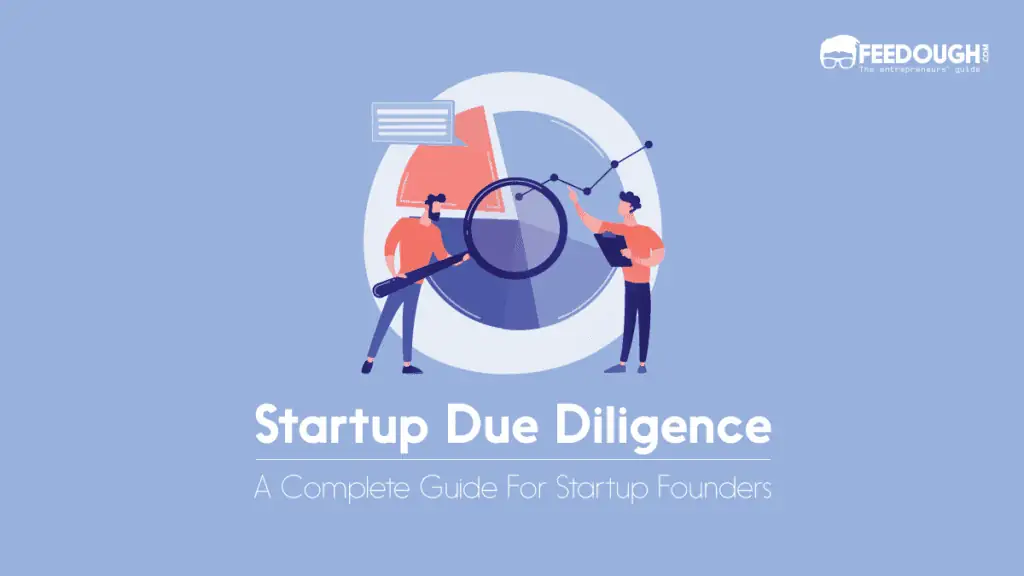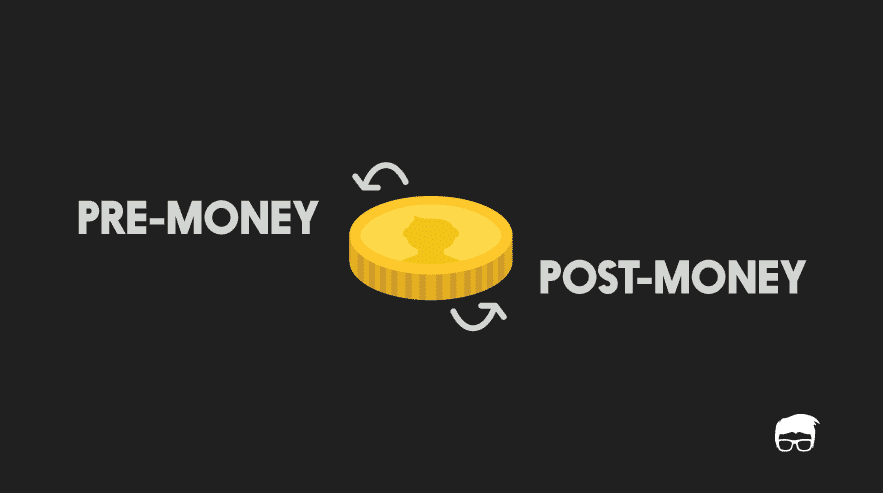Finding an investor is hard. Convincing him to invest in your startup is harder. But the hardest part is actually getting the deal done. Why? Because before an investor hands over his money, he will want to know everything there is to know about your business.
This process, where the investor tries to gather as much information as possible about the business before investing, is due diligence, and it forms an essential part of every investment deal.
What Is Due Diligence?
Due diligence is an investigation or review of a potential investment or product to confirm all facts, such as reviewing financial records, contracts, and other legal documents.
In startups, due diligence is usually performed by investors, usually venture capital firms, to verify the claims made by the startup and get a better understanding of the business, the team, the technology, the market opportunity, and the competitive landscape.
The goal of due diligence is to minimise the investment risks for the investor by helping him make an informed decision.
Why Is Due Diligence Done?
Startup founders try to impress investors using various marketing tactics and making bold claims about their business. Investors perform due diligence to verify these claims to get a clear picture of the company before investing.
It is a systematic way to gather all the information about the startup so that investors can identify any red flags or potential problems that might impact their decision to invest.
These potential problems can be anything from financial irregularities to legal issues, and it is the job of the investor’s legal and financial team to uncover them during the due diligence process.
In simple terms, due diligence is involving experts to vet the startup to get the following answers:
- What potential problems or risks are associated with this investment?
- Can these problems or risks be mitigated?
- What are the potential rewards of this investment?
- Is this the right time to invest in this startup?
- Has the company been honest and transparent about its business?
- Does the company comply with all legal and regulatory requirements?
- Does the company own all the intellectual property (IP) associated with their products and services?
- What is the competitive landscape?
When Is Due Diligence Done?
In an ideal startup fundraising process, due diligence is done twice – once before the term sheet is signed and once after.
Pre-Term Sheet Due Diligence
The pre-term sheet due diligence, commonly called business due diligence, identifies whether the startup “fits” the investor’s investment criteria.
This usually happens after the investor has expressed interest in investing in the startup but before committing to anything.
This process is relatively informal and is usually done by the junior and senior members of the venture capital firm or by the investor himself if it’s an angel investor or a small firm owner.
The goal of the pre-term sheet due diligence is to help the investor decide whether he wants to take forward the talks to the term sheet stage or not. He finds the answer to this question by assessing the startup’s business model, market opportunity, competitive landscape, and team.
During this process, the investor will also try to understand the startup’s financials better to predict its future cash needs.
Pre-term sheet due diligence usually takes 1-2 weeks to complete.
Post-Term Sheet Due Diligence
The second round of due diligence is carried out once both parties have signed the term sheet and is known as post-term sheet due diligence or legal due diligence. This is done to verify all the claims made by the startup during the negotiation process and to prepare for the closing of the deal.
Post-term sheet due diligence is a more formal process and is usually done by the investor’s legal and financial team. They will go through all the documents related to the business, such as financial statements, contracts, legal filings, etc.
It may involve meetings with the startup’s management team, customers, suppliers, and other key stakeholders. This exercise aims to identify any potential problems that might impact the investment decision.
Parties Involved In Due Diligence Process
Due diligence is usually done by the investor’s team, which includes
- Lawyers,
- Accountants, and
- Financial analysts.
But in some cases, the investor might also hire external consultants to help with the process.
The startup’s management team is also involved in the due diligence process as they are responsible for providing all the information required by the investor. They will also have to answer all the questions asked by the investor’s team and lawyers.
Usually, startups also employ lawyers to help them during the DD process. These lawyers will go through all the documents related to the deal and will also negotiate with the investor’s team on behalf of the startup.
How Is Due Diligence Performed?
Due diligence is usually performed in two steps – information gathering and information analysis.
Information Gathering
This is the first step of the due diligence process, and it involves collecting all the relevant information about the startup. This information can be divided into financial, legal, and business categories.
Financial Information
This includes all the startup’s financial statements, such as balance sheet, income statement, cash flow statement, etc. The investor’s team will also look at the tax returns and other financial documents to better understand the startup’s financial health.
This exercise aims to understand the historical performance of the startup and predict its future cash needs.
Legal Information
Investors will also want to know about all the legal agreements of the startup, such as contracts, leases, licenses, etc. They will also want to know about any pending lawsuits or disputes.
The investor’s team also scrutinises the founders’ personal legal history along with previous business ventures.
Business Information
This includes information about the startup’s business model, products, customers, market opportunity, competitive landscape, etc. The investor’s team will also want to know about the cofounders, management team and their experience in the industry.
Methods Used To Gather Information
Usually, the investor team collects this information using the following methods:
- Customer calls: A few calls are made to the startup’s customers to get feedback about the products and services.
- Supplier calls: Asking some questions to the suppliers to get an idea about the startup’s business operations.
- Management interviews: One-on-one meetings with the startup’s management team to understand their vision and strategy.
- Deep financial review: A thorough analysis of all the financial statements to identify any red flags. These statements include but are not limited to the balance sheet, income statement, cash flow statement, etc.
- Industry research: Doing some research about the specific industry in which the startup operates. Finding out the trends, opportunities, and threats in that industry.
- Competitor analysis: A study of the startup’s competitors to understand the market opportunity.
- IP diligence: Checking for any intellectual property rights issues.
- Contract reviews: Deep diving into all the startup contracts to identify any risky provisions.
- Legal diligence: Looking for ex-founder issues, cap table issues, vesting schedules issues, ex-employees issues, etc. and also reviewing all the legal documentation of the startup. These documents can include employee agreements, supplier contracts, lease agreements, etc.
- Product demos: Checking out the startup’s products to better understand the technology. The team may also involve specialists to get an expert opinion about the products.
Information Analysis
Once all the relevant information has been gathered, it is analysed by the investor’s team.
Specialists in each field, such as lawyers, accountants, and financial analysts, go through the information collected during the previous phase.
They go through all the documents and interview the stakeholders to look for red flags. Some examples of red flags include:
- IP ownership issues: If the startup does not have clear ownership of its IP, it can be a big risk for the investor.
- Pending lawsuits: If the startup is involved in any legal disputes, it can delay or even scuttle the deal.
- Inadequate management team: The investor can also back out if they feel that the startup does not have a strong management team.
- Inadequate financial management: Investors invest their money with an expectation of return. If the startup is not managed well financially, it can impact the investor’s returns.
- Cap table issues: The cap table is a document that shows the ownership structure of the startup. If there are any issues with the cap table, it can be a problem for the investor.
- Bad contracts: Previous contracts that can be disadvantageous to the startup can also be a concern for investors.
- Tax Problems: Entrepreneurs often overlook tax issues, but they can be a big problem for investors. Problems like missing 83(b) elections or issuing options below 409A prices can create tax liabilities for the startup and the investors.
- Legal problems: Loan and guarantee agreements, franchising agreements, and other legal documents often have clauses that can be disadvantageous to the startup. These clauses can be a problem for investors.
After the information has been analysed, the investor’s team will prepare a report detailing their findings and recommendations. This report is then presented to the investors, who will use it to make their final decision.
What Happens After Due Diligence?
The whole due diligence process can take anywhere from a few weeks to several months.
Once the due diligence is complete, the investor will decide whether or not to invest in the startup.
If the investor decides to invest, they will negotiate and sign an investment agreement with the startup. This agreement will detail the terms of the investment, such as the amount of money to be invested, the equity stake to be taken, and the rights and obligations of each party.
The investor may also ask to change some of the terms of the agreement based on what they have learned during due diligence. This scenario is called a re-trade. It doesn’t happen often, but it’s not unheard of.
If the investor decides not to invest, they will usually inform the startup and return any confidential information that they have received. The startup can then try to raise money from other investors.
What Entrepreneurs Should Take Care of During The Due Diligence Process?
There are a few things that entrepreneurs should keep in mind before, during, and after due diligence:
- Be prepared: Before meeting with investors, entrepreneurs should have all the relevant information and documents ready. They should also be prepared to answer any questions that the investor might have.
- Be honest: It is essential to be honest with the investors during due diligence. If there are any problems with the startup, it is better to reveal them during due diligence than to try to hide them.
- Be responsive: During due diligence, the investor’s team will ask for a lot of information. It is important to be responsive and provide the information in a timely manner.
- Keep track of changes: Any changes to the business model, management team, or financial situation of the startup should be tracked and reported to the investor.
- Get everything in writing: Any agreements between the startup and the investor should be put in writing and signed by both parties. This will help avoid any misunderstandings later on.
Go On, Tell Us What You Think!
Did we miss something? Come on! Tell us what you think about our article on due diligence in the comments section.
A startup consultant, digital marketer, traveller, and philomath. Aashish has worked with over 20 startups and successfully helped them ideate, raise money, and succeed. When not working, he can be found hiking, camping, and stargazing.





![How To Get Startup Funding [The Complete Guide] startup funding guide](webp/startup-funding-guide.webp)


